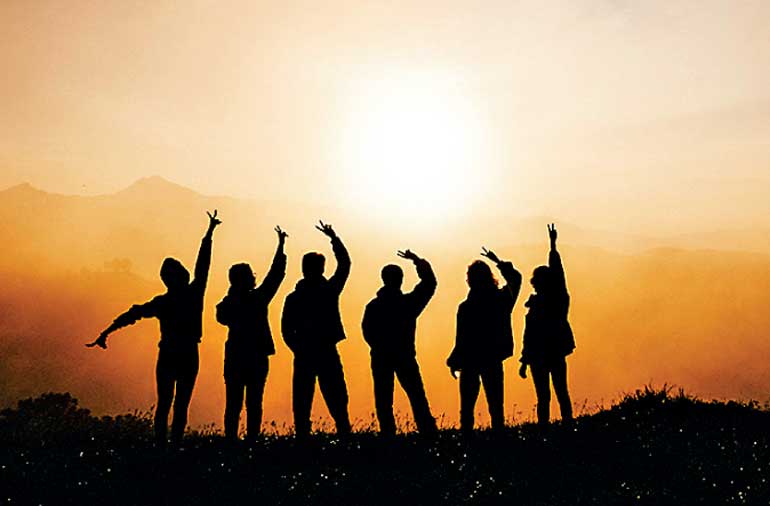Tuesday Mar 03, 2026
Tuesday Mar 03, 2026
Saturday, 14 August 2021 00:00 - - {{hitsCtrl.values.hits}}

 On Thursday, 12 August, International Youth Day was celebrated under the theme of ‘transforming food systems through youth innovation for human and planetary health’. The day served as an occasion to highlight different aspects related to youth engagement in food systems, the environment, and climate action.
On Thursday, 12 August, International Youth Day was celebrated under the theme of ‘transforming food systems through youth innovation for human and planetary health’. The day served as an occasion to highlight different aspects related to youth engagement in food systems, the environment, and climate action.
Youth can make a change and contribute to creative solutions, for example by engaging in food systems through advocacy, entrepreneurship, promoting a better understanding of food webs, nutrition, and diets, linking producers and consumers, building capacities, implementing projects, or engaging in sustainable entrepreneurship and innovation. They can push for local action that drives global change and play a huge role in transforming existing food production towards more climate-friendly, sustainable, ethical, local, and just systems.
However, youth, and particularly youth with special needs, are among the most vulnerable groups to climate change impacts or disruptions of the food system. Their health and development, which is often more sensitive to sudden changes, can suffer in cases of food insecurity or nutritional deficiencies while other impacts of climate change, such as heat waves, can make it harder or even impossible for them to attend school. During disasters such as floods or landslide, mobility constraints or cognitive disabilities can pose a serious challenge when it comes to sheltering, evacuation, understanding early warnings, or following instructions in emergency situations.
Therefore, it is crucial that youth with special needs have a say in and are part of solutions to climate change and food system transformation. Currently, they are often not fully integrated into policies, plans, and actions, and face higher barriers to engagement and access. Youth with physical disabilities, such as deafness, blindness, or mobility constraints, may require additional support to access events and information, while those with cognitive or developmental disabilities usually need assistance or additional ways to engage. During the current COVID-19 pandemic, measures to prevent infection might also not work well for them and present further obstacles, for example home schooling or virtual classrooms.
Depending on their individual situation, youth with special needs may require avenues of engagement to be made more accessible or require aids to do so. This could include measures such as making processes on food systems and climate change inclusive and participatory; offering captions, interpretation, or audio versions during events and in outreach materials; recognising differential abilities to engage and finding roles for everyone; enhancing the integration of special needs into teacher training as well as formal and informal education systems; offering inclusive schooling, training, and skills development; establishing vocational training centres for youth with special needs; providing low-cost aids made with local resources; increasing the availability and accessibility of transport and public spaces; shifting to inclusive planning approaches that recognise youth and adults with special needs, for example in evacuation plans and procedures; or heightening awareness and understanding of special needs within society and in groups working on food systems and climate change.
When adjustments like these are made, youth with special needs have enormous potential to build their capacities and engage in many ways to improve food systems, adapt to climate change, and build resilience of countries, communities, and themselves. They can bring their own perspectives to the table, apply specialised skills such as IT, or set up food production systems such as urban gardening. If given the opportunity to be part of a group or network, young people with special needs can contribute to climate or conservation action on the ground and participate in national or international events.
This International Youth Day has highlighted how human and planetary health go together and are deeply interlinked – and that all members of society can be part of the work towards real and positive change.
(The writer works as Director – Research & Knowledge Management at SLYCAN Trust, a non-profit think tank based in Sri Lanka. His work focuses on climate change, adaptation, resilience, just transition, human mobility, and a range of related issues. He holds a Master’s degree in Education from the University of Cologne, Germany and is a regular writer to several international and local media outlets.)